Today’s Islamic world encompasses more than 50 countries in the world. Geographically, Islamic world claims 16 percent of the world’s land mass. There are over one billion Muslim populations in the world today which comprises 23 percent of the world population. Therefore, here is power bloc which cannot be ignored in geo-politics, but Muslim countries are incidentally divided over petty issues. Muslim countries are not united in a bloc because of sectarian divide. Although Organization of Islamic Conference (OIC) was established to safeguard and protect the interests of Muslim world in a spirit of promoting international peace and harmony, in practice there is no unity among Muslim Countries. Recently this organization has changed its name. It is now known as the Organization of Islamic cooperation (OIC). In the United Nations OIC also represents safeguarding and protect the interests of the Muslim. Islam remains a force despite division among the Muslim countries, to be reckoned with on the world’s geopolitical and diplomatic fronts.

Many religious leaders and political pundits in many countries, time and again, spoke about Islam. Of late, Prince Charles came out with truth about Islam at a lecture at the Oxford Center for Islamic Studies on 27 October, 1993. One is tempted to quote from his lecture: “Islam is part of our past and our present, in all fields of human endeavour. It has helped to create modern Europe. It is a part of our own inheritance, not a thing apart. More than this, Islam can teach us today a way of understanding and living in the world.”
Diplomacy in Islam did not flourish in a day or two but it took a definite shape over the years since the days of Prophet Muhammad(SM). This fact has completely been ignored by the writers on diplomacy. The emergence of Islam was neither a marginal event, as some Christian historiographers would have depicted it nor one important happening, but it represented a turning point in the struggle between spiritual belief and materialistic philosophy. As a religion, Islam brings in the concept of equality of man. As a matter of fact, Islam is a complete code of life encompassing all spheres of human activities—social, economic, legal, cultural and political. Islam is for all humanity irrespective of caste, creed and colour. It’s Islam that provides the idea of a universal state based on the equality of man.
In the early days of Islam, diplomacy was referred to as an auxiliary to or a substitute for war. For example, messages were delivered by an emissary to the Emperor or King to accept Islam before war broke out. Emissary was sent to exchange prisoners of war at the end of war. During Abbasid period exchange of gifts or negotiation of treaties were carried out. Emissary was dispatched by Prophet Muhammad(SM) to preach tenets of Islam or for political purpose. Such emissaries were received by the Emperor or King of Byzantine, Egypt, Persia and Ethiopia.
According to historians, the Emperor of Ethiopia and King AL-Muqaway of Egypt accepted the invitation to accept Islam while Emperor of Byzantine refused to embrace Islam. The Persian King, however, tore up the letter. When this news carried back by the envoy to Prophet Muhammad (S.M), he remarked that his kingdom would be torn. The diplomatic exchange was essentially religious in nature. The emissary was selected from amongst the confidants, who were known as knowledgeable about religion, adroit, physically strong and good looking as well.
During old days emissary was looked upon as spy. As such, envoy was instructed to refrain from drinking and to keep away from woman in particular. A negotiation skill constitutes as an important factor in diplomacy and nations must rely upon the quality of their diplomacy to act as a catalyst for different factors that constitute their power. Prophet Muhammad (SM) initially began preaching Islam in Mecca, but he was opposed by the Quaraysh group. Twice he organized meetings of the elites of the Quaraysh in Mecca to pass the message of Allah revealed to him but he was jeered at. Finally he went to the masses to address them but when he spoke against their many Gods they became furious and considered him as their enemy. His uncle Abu Talib was also against him. However, Abu Talib protected him from the wrath of the Quraysh. A deputation of the Quraysh went to Abu Talib to register protest against Prophet Muhammad SM and Abu Talib averted the crisis by his conciliatory note. But relations between Prophet Muhammad and the Quraysh continued to deteriorate. A complaint was lodged with Abu Talib again and he was told to put a stop to the activities of his nephew. “Until we are rid of him we will fight both of you till one side is perished,” said a delegation of the Quraysh. Abu Talib called his nephew and admonished him by saying, “Spare me and you. Do not put on me a burden greater than I can bear.”
Despite stiff opposition and accusation Prophet Muhammad (SM) remained calm and composed which are rare qualities of a diplomat. When the Quarysh did not succeed in stopping his activities, they started negotiations with him. They thought that they could buy Muhammad(SM) by offering him money or if it was an honor, they would make him their chief or if it was sovereignty, they would make him the King. Muhammad (SM) listened to them avidly and when their arguments were over, Prophet Muhammad started recitation of the Sura which says our hearts are veiled from that which you invite us. The Quraysh lost their case as Muhammad (SM) did not accede to any of their proposals. Muslims became the target of attacks in Mecca and Muhammad (SM) was humiliated following the failure of the negotiations initiated by the Qurayash. He decided to move to Taif to convince the Chiefs there, but he could not succeed their either because Chiefs turned down the invitation to embrace Islam. Stones accompanied by jeers and abuses rained on him. Prophet was injured but he carried out his mission. When all Chiefs in Mecca decided to kill Prophet, he decided to leave for Medina. At the age of 53 Prophet Muhammad SM migrated to Medina where he was received with affection. Initially, he wanted to establish a base from where he could spread the message of Allah. Therefore, he started negotiations with the people of Medina and the Jews as well to sign a treaty of friendship and cooperation. He succeeded in executing the treaty of friendship and cooperation which became the first such treaty that he ever signed. It remained a document of great historical significance because it gave birth to the concept of a state based on faith, apart from being first treaty in Islam. Abd al-Rahman Azzam, an author on the Eternal messages of the Prophet and former Egyptian Ambassador described it as a covenant between Islamic peoples and Jews worshippers who joined the pact and thereby became another link in the chain. With the conclusion of this agreement, Islam anticipated the modern era of the League of Nations and the United Nations by more than thirteen centuries. Abd al-Rahman Azzam was the founder of Arab League and served as its first Secretary-General from 1945 to 1952. The Muslims were declared as one community (Ummah) and Muslims from Medina became the brethren of Muslims from Mecca. This treaty is known as the Charter of Medina. It stipulated the idea of the Islamic state in its formative stage while it explicitly spelled out that any incident or quarrel from which disaster was to be feared, would be referred to God and to Muhammad( SM).
The age old conflict between Muslim Palestinians and Jewish Israelis necessitates that the parties follow the Charter of Medina for living in peace and harmony side by side.
In the treaty emphasis was laid on the unity of the Ummah in war and peace. The striking part of this treaty is that it is based on the common faith that the Ummah thrives on, but not on the basis of Kinship. The treaty is also done away with the local, territorial and tribal alliances. Prophet Muhammad SM introduced a system of consultation with leading companions to take a decision on all major issues affecting the life of the people of Medina.
During his life time Prophet Muhammad (SM) received many envoys from different heads of states for making an agreement of peace with Muslims after the defeat in Wars. Generous treatment was meted out to envoys and they enjoyed immunity. An envoy, who was convicted by the state to which he was accredited, was also given due respect which an envoy deserved. Envoys were allowed to perform their own prayer and religious rites too. According to Islamic teaching the head of state does not enjoy immunity which an envoy can. The Head of State is subject to trial for flouting the law of the land. Prophet Muhammad SM himself is a glaring example of one who on has heard cases against him. The Prophet had set an example that the ruler is as much subject to law as an ordinary citizen. He is also on record to have allowed the delegation of the Christians of Najran to hold their service in his mosque. Another charter, which is known as charter of Najran, pledged the security of the lives, religion and property of the Christians. There should be no interference with the practice of the faith or observance or any change in their rights or privileges.
Generally, envoys were not arrested or detained. In one of the cases Prophet Muhammad SM detained an envoy of Mecca and he was released when the Muslim envoy who was detained by the Quraysh returned safel from Hudaybiya(Mecca) to Medina. During the life time of the Prophet SM envoys enjoyed diplomatic privileges. He did not insist on agreement or protocol as has been the present day practice by Vienna convention for receiving any envoy from a certai or a country. There is another episode which relates to the appointment of Wahshi, the Abyssinian slave as Ambassador, but he was reluctant to accept ambassadorial appointment because he barbarously killed Humza, uncle of the Prophet in the battle of Uhud which was a reprisal against Muslims by the Quraysh following thedefeat at the battle of Badr. On completion of tour of my duty as Deputy Chief of Mission in Germany I have had the pleasure to visit Jeddah, Mecca and Media in November 1999 to offer Umrah Hajj, apart from visiting historical places. I had been to the battle fields of Badr and Mt Uhud to recollect Islamic glorious struggling past and courage shown by Prophet Muhammad(SM) in organizing fighting forces and strategies as well against various odds. This is what Professor G.W.Chowdhury, a former Professor of Political Science of Dacca University in mid-50’s who retired as Adjunct professor from Columbia University in New York in 1984 to join his wife Dilara Chowdhury, a retired Professor of Political Science from Janagirnagar University, wrote in his book: the Prophet Muhammad, his life and eternal message pointed out that “the prophet Muhammad was very successful in his military strategy. Against heavy-odds, he achieved success after success over his opponents. He himself organized the military expeditions. After military victories he would decide how to deal with defeated foes, demonstrating a regard for just and fair rules of war and peace. His perfection and greatness in military affairs were beyond measure.” I would like to note another significant war of the Trench which took place in Medina (Known as Yathrib in history) on the fifth year the Hijra from Mecca. According to Muhammed Marmaduke Pickthall, a western Islamic scholar noted for English translation of Quran,”the Prophet by the advice of Salman, a Persian, caused a deep trench to be dug before the City of Yathrib, and he led the work of digging it. The army of clans was stopped by the trench, a novelty in Arab warfare. It seemed impassable for Calvary, which formed their strength. They camped in front of the trench while Muslims were awaiting the assault. News came that Bani Qureyeyzak, a Jewish group of Yathrib which till then had been royal, had gone over to the enemy. Fortunately, delay caused by the trench had damped the ardor of the clans. It was followed by a bitter wind from the Sea (Red Sea on which Mecca and Medina thrives), which blew for three days and nights so terribly that not a tent could be kept standing, not a fire lighted, not a pot boiled. The tribesmen were in utter misery. One night the leader of Qureysh ordered to retire”. That’s was the end of war of trench. The treaty of Hudaybiyyah(now known as Mecca) during life of the Prophet was significant which had made truce with the Quraysh to defuse the tense situation between two cities of the present Kingdom of Saudi Arabia. The Quraysh recognized Muhammad’s SM rights to proselytize without hindrance in 628-629 and Jews of Khaybar put to the sword. That treaty of Hudaybiyyah had helped people from Medina led by Prophet Muhammad SM to march peacefully towards Mecca to perform Umrah and towaf around the Kabah. Prophet Muhammad SM had sent letters and messengers to Kings of Persia, Yemen, Ethiopia and the emperor Heraclius inviting them to accept Islam.
When Wahshi presented his credential to the Prophet, he was accorded unprecedented treatment which was described by some Islamic scholars as “both unexpected and unparalleled in the annals of Arab history”. It had been the practice in those old days that the envoys were received through ceremonial reception and provided with gifts. Similar treatment was accorded to an envoy on completion of tour of duty. If a Muslim envoy received gifts from a foreign ruler it would go to the treasury of the state. Similarly, Prophet Muhammad SM also deposited in the state coffer gifts received from foreign country. This system exists in the present day modern world.
The Prophet also sent envoys to the Arab and non-Arab rulers. The first mission was sent to Abyssinia during Prophet’s early days in Mecca when Prophet and his followers were subjected to harassment by the Quraysh. A group of Muslims was dispatched to Abyssinia to seek protection of King Negus. Muslims put forward their arguments and convinced King Negus for political asylum which was granted. The Quraysh could not succeed to convince King Negus to hand over Meccan Muslims despite providing valuable gifts to the King of Abyssinia. During Prophet’s life time envoys were briefed to be tactful, accommodating and sympathetic in the conduct of negotiations before being accredited to different cities, communities and countries to convey the message of Islam. Envoys were sent to the rulers of Yemen, Bahrain, Oman and the Governors of Damascus and Alexandria by the Prophet SM.
The envoy in Islamic terminology is known as Safir. The word Safir is derived from Safar which means travelling with a special mission. A Safir or envoy is entrusted with full power for negotiations, conciliations, or conclusion of treaty or alliance. The envoy used to carry the official letter to hand over to the head of state of the receiving country. This letter was either in the form of letter of credence empowering the envoy to deliver the message verbally or general statement explaining the purpose of the mission.
During Umayyad period diplomatic interaction was confined to Byzantines for the purpose of signing peace treaties. Umayyad Caliphates negotiated peace treaties and paid annual tribute to the Byzantine emperor to dissuade him from attacking them particularly at a time when they were involved in civil war.
Frequent exchanges of an envoy took place during the Abbasid period. Peaceful solution of conflicts through negotiations was always preferred. An exchange of prisoner of war by concluding treaties was encouraged. Envoys were given grand ovation during Abbasid period. They were received by the representative of the Caliph or Sultan in the capitals of Baghdad, Cairo, Cordova (now part of modern Spain) and were escorted in a procession to the houses earmarked for them. Several Byzantine emissaries paid visits to Bagdad during the reign of Al-Muqtadir. There was a tradition that an envoy was not only entertained lavishly but also taken round to places of interests and magnificent palaces. Envoys were also provided with gifts and robes of honor before their departure on completion of tour of duty which reflected hospitality of the host state. It is interesting to note that gifts are exchanged by both sides when Prime Minister or President visits a host country as a part of diplomatic protocol which is generally followed in the present day.
During Abbasid rule there were four big powers. In the East there were the Abbasid and Byzantine empires while in the west the Frankish empire and the Umayyad’s of Spain. The rivalry between the two eastern powers and the two western powers continued for a long time which ultimately led to establishing significant diplomatic links. There were also conflicts between two Muslim states and the two Christian states. These conflicts in fact facilitated Frankish ruler and the Abbasid Caliph to develop cordial relations with each other. Similarly, Cordova developed cordial relations with Constantinople. According to one source, it was Pippin, the ruler of Franks, who dispatched diplomatic missions to Al-Mansur, second Caliph of Abbasid to initiate diplomatic negotiations. The first such exchange of envoys took place in 765 AD. During the period of Charlemagne, son of Pippin, several envoys were dispatched to the court of Harun al-Rashid,Caliph of Abbasid to establish friendly relations among the two great monarchs.
Diplomacy in Islam played very significant role in diffusing tension, signing treaties to make peace with enemy, exchanging prisoners of war and establishing contact with non Muslim countries. During the time of peace diplomacy gained prominence in facilitating trade relations, exchanging information among nations and fulfilling other social purposes. Foreign policy is perceived in medieval days for the spread of Islam and to avoid conflict in peaceful manner. That was the beauty of diplomacy in Islam.
Mohammad Amjad Hossain, retired diplomat from Bangladesh and former President of Nova chapter of Toastmaster International Club of America and former Joint-Director of Central Kachi-Kanchar Mela (a biggest and oldest Children organization) of Bangladesh, writes from Virginia.

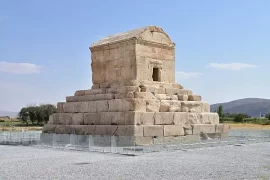

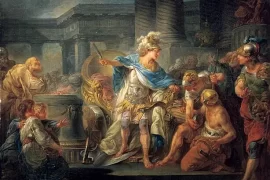
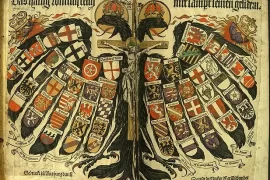
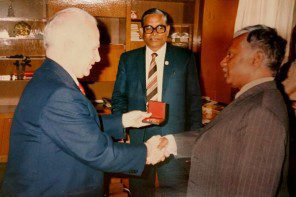
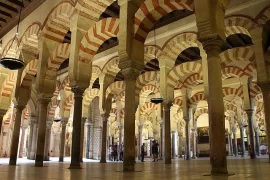

i get alot of knowledge about diplomacy in islam by your article thanks alot sir ji always be happy ALLAH BLEES ON YOU AMEENNNNNNNNNN
i will make may ir assigment it will help me 4 making my university assignment
I prepared my IR topic. Islamic approach to diplomacy. It’s also knowledgeable article for common people. They will know that modern diplomacy is based upon these golden Islamic principles. Really strong and comprehensive words. May Allah give you reward.